
Alain Resnais was a French film director and screenwriter whose career extended over more than six decades. After training as a film editor in the mid-1940s, he went on to direct short films including Night and Fog (1956), an influential documentary about the Nazi concentration camps.

The Nouveau Roman is a type of 1950s French novel that diverged from classical literary genres. Émile Henriot coined the term in an article in the popular French newspaper Le Monde on May 22, 1957 to describe certain writers who experimented with style in each novel, creating an essentially new style each time. Most of the founding authors were published by Les Éditions de Minuit with the strong support of Jérôme Lindon.

Mon oncle d'Amérique is a 1980 French film directed by Alain Resnais with a screenplay by Jean Gruault. The film juxtaposes a comedy-drama narrative with the ideas of Henri Laborit, the French surgeon, neurobiologist, philosopher and author. Its principal actors are Gérard Depardieu, Nicole Garcia, and Roger Pierre.

Woman in the Dunes or Woman of the Dunes is a 1964 Japanese New Wave avant-garde psychological thriller and drama film directed by Hiroshi Teshigahara, starring Eiji Okada as an entomologist searching for insects and Kyōko Kishida as the titular woman. It received widespread critical acclaim and was nominated for two Academy Awards. The screenplay for the film was adapted by Kōbō Abe from his 1962 novel. The movie is now considered to be Teshigahara's masterpiece, one of the best movies of 1964, of the 1960s and of the 20th century, as well as one of the best and greatest Japanese movies of all time.
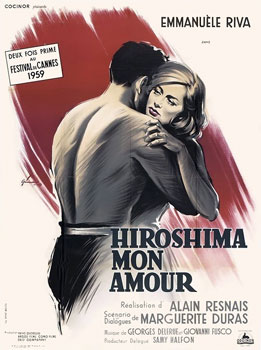
Hiroshima mon amour, is a 1959 romantic drama film directed by French director Alain Resnais and written by French author Marguerite Duras.
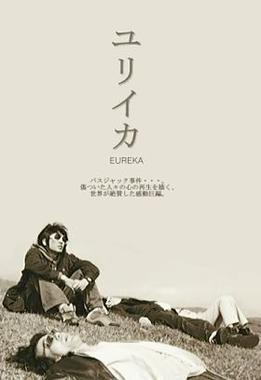
Eureka is a 2000 Japanese drama film written and directed by Shinji Aoyama. It stars Kōji Yakusho, Aoi Miyazaki, and Masaru Miyazaki. It won the FIPRESCI Prize and Prize of the Ecumenical Jury at the 2000 Cannes Film Festival. It was released in Japan on 20 January 2001.
Anatole Dauman was a French film producer. He produced films by Jean-Luc Godard, Robert Bresson, Wim Wenders, Nagisa Oshima, Andrei Tarkovsky, Chris Marker, Volker Schlöndorff, Walerian Borowczyk, and Alain Resnais.
Sacha Vierny was a French cinematographer. He was born in Bois-le-Roi, Seine-et-Marne, Île-de-France, France, and died in Paris, France, at the age of 81. He is most famous for his work with Alain Resnais – especially for the two films Hiroshima mon amour and L'année dernière à Marienbad – and with Peter Greenaway.
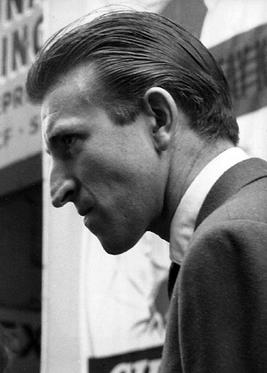
Henri Colpi was a French film editor and film director.

Nadine Trintignant is a French filmmaker and novelist. She is known for making films that surround the topic of family and relationships, such as Ça n'arrive qu'aux autres and L'été prochain. Her film Mon amour, mon amour was nominated for the Palme d'Or at the 1967 Cannes Film Festival.
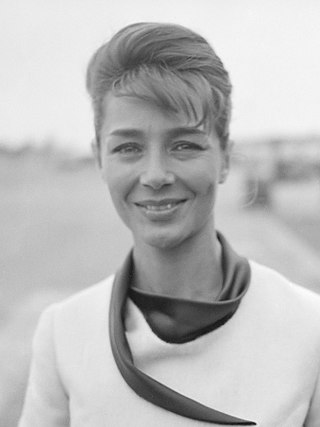
Emmanuelle Riva was a French actress, best known for her roles in the films Hiroshima mon amour (1959) and Amour (2012).

Araya is a 1959 Venezuelan documentary film directed by Margot Benacerraf and co-written by Benacerraf and Pierre Seghers.
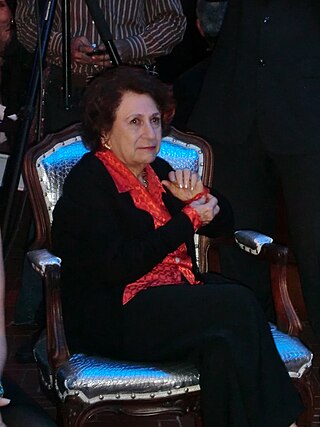
Margot Benacerraf was a Venezuelan film director. She studied at the Institut des hautes études cinématographiques in Paris and is best known for her 1959 award-winning film, Araya.

Nobuhiro Suwa is a Japanese film director working in Japan and France. His directorial works and screenplays often make use of improvisation techniques. Currently, Suwa is the President of Tokyo Zokei University.
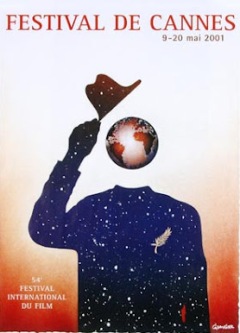
The 54th Cannes Film Festival started on 14 May and ran until 20 May 2001. Norwegian actress and director Liv Ullmann was the Jury President. The Palme d'Or went to the Italian film The Son's Room by Nanni Moretti.
The French Syndicate of Cinema Critics has, each year since 1946, awarded a prize, the Prix Méliès, to the best French film of the preceding year. More awards have been added over time: the Prix Léon Moussinac for the best foreign film, added in 1967; the Prix Novaïs-Texeira for the best short film, added in 1999; prizes for the best first French and best first foreign films, added in 2001 and 2014, respectively; etc.
Where or When is a 2003 film by Iranian film director Bahman Pour-Azar. He co-wrote the film script with Jun Kim over seven years, but shot the entire movie in less than a week at various locations in both New York and New Jersey. The film was produced for less than US$50,000.

The 12th Cannes Film Festival was held from 30 April to 15 May 1959. The Palme d'Or went to the Orfeu Negro by Marcel Camus. The festival opened with Les Quatre Cents Coups, directed by François Truffaut and closed with The Diary of Anne Frank, directed by George Stevens.
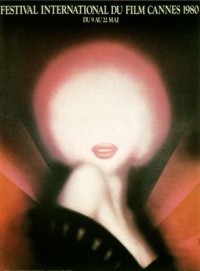
The 33rd Cannes Film Festival was held between 9 and 23 May 1980. The Palme d'Or went to the All That Jazz by Bob Fosse and Kagemusha by Akira Kurosawa.

Je t'aime, je t'aime is a 1968 French science fiction film directed by Alain Resnais from a screenplay by Jacques Sternberg. The plot centres on Claude Ridder who is asked to participate in a mysterious experiment in time travel when he leaves the hospital after a suicide attempt. The experiment, intended to return him after one minute of observing the past, instead causes him to experience his past in a disjointed fashion.
















